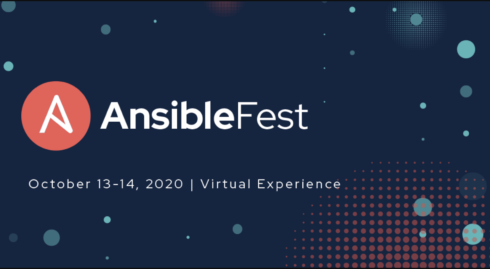
At Red Hat AnsibleFest this week, the company released a number of new automation capabilities for its platform.
Red Hat Ansible Automation platform integration for Red Hat OpenShift environments released
The integration between Red Hat Advanced Cluster Management for Kubernetes and Red Hat Ansible Automation Platform connects traditional platforms, containers and edge through automation.
The integration is designed to accelerate the automation and integration between cloud-native and traditional infrastructure as application modernization is among today’s top IT priorities, according to Gartner.
Red Hat will take advantage of OpenShift’s Kubernetes Operator foundation to further IT automation in hybrid cloud environments. With Kubernetes Operators, users can easily run applications at-scale across OpenShift deployments.
Additionally, with a Resource Operator for Red Hat Advanced Cluster Management, the technology can call on Ansible Automation Platform to execute tasks more efficiently outside of the Kubernetes cluster.
“By integrating Red Hat OpenShift with Ansible Automation Platform, enterprises can leverage Ansible for infrastructure management and application deployment. We believe Ansible has become a de facto automation standard, and Red Hat provides a tremendous amount of ready-to-use Ansible automation that spans domains and is curated, certified and supported,” said Joe Fitzgerald, the vice president of management at Red Hat.
Red Hat releases catalog of ready-to-use, certified and supported Ansible Automation
Red Hat Ansible Automation Platform expanded with certified, hybrid cloud integrations to private Automation Hub, to fuel IT productivity and extend holistic automation across the enterprise.
“With dynamic global challenges requiring rapid adjustments in operational domains and environments, automation projects have helped mitigate the complexity that these conditions produced and provides faster responses to changing business requirements,” Red Hat wrote in a post. “Bringing together teams for improved collaboration, these new services and offerings ultimately connect business managers with automation leaders to better align automation strategies with the needs of the business and expand how automation can be invoked.”
The additional certified content collections make in-demand code automation code more readily available.
Introduced in 2019, Ansible Content Collections provide a standardized method for automation developers to build and package automation content, and for implementers to consume them in a portable and scalable way.
The newest version of Ansible Automation Platform is slated to include newly certified Ansible Content Collections for Red Hat OpenShift, Kubernetes Core and VMware vSphere REST API.
Meanwhile, Ansible Automation Hub is a managed cloud service to provide easy access to certified Ansible content for customers, maintained by Red Hat and its partners.
Lastly, the ability the automation services catalog makes enterprise-specific, pre-approved, curated automation available to infrastructure and application teams, as well as to business users.
The capability helps provide IT administrators and security operations teams with greater visibility over what is being automated while not slowing down organization-wide automation practices, according to the company in a post.








